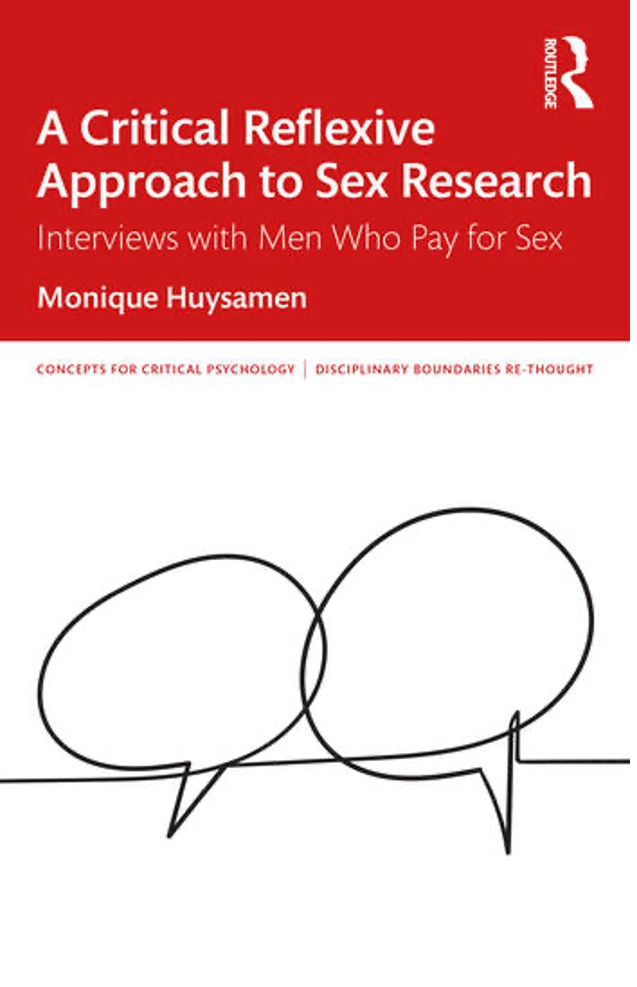Reseñas de libros
Book Review. A Critical Reflexive Approach to Sex Research. Interviews with Men Who Pay for Sex, Monique Huysamen (Routledge, 2022), pp. 150.
Book Review. A Critical Reflexive Approach to Sex Research. Interviews with Men Who Pay for Sex, Monique Huysamen (Routledge, 2022), pp. 150.
Psicología Iberoamericana, vol. 30, núm. 1, 2022
Universidad Iberoamericana, Ciudad de México

Esta obra está bajo una Licencia Creative Commons Atribución 4.0 Internacional.
 | Huysamen Monique. A Critical Reflexive Approach to Sex Research. Interviews with Men Who Pay for Sex. 2022. New York . Routledge. 150pp.. 9780367554477 |
|---|
Recepción: 30 Junio 2022
Aprobación: 14 Julio 2022
In June 2022, Monique Huysamen published a book entitled, A Critical Reflexive Approach to Sex Research. Interviews with Men Who Pay for Sex, which offers rich insights into the subjectivities of men who pay for sex in South Africa and makes a valuable contribution to qualitative methodology.
Monique Huysamen, Ph.D., is a senior researcher at Manchester Metropolitan University in sexual and reproductive health. Her research focuses on gender, sexualities, sexual health, social justice, and neurodiversity. She received her PhD in Psychology from the University of Cape Town and has published on research ethics and critical approaches to doing qualitative research. Huysamen´s new book draws on her years researching sex work in South Africa and her expertise in qualitative methodology. It is part of a book series, “Concepts for Critical Psychology: Disciplinary Boundaries Re-thought,” edited by Professor Ian Parker, one of the central figures of critical psychology in Britain.
A Critical Reflexive Approach to Sex Research. Interviews with Men Who Pay for Sex consists of six chapters, outlining a critical reflexive approach in qualitative methodology based on her research on sex work. The book demands a “radical reflexive turn” in research and calls for a historically informed approach. Huysamen rightly argues in her book that questions of context, institution, and power are central to critical reflexive research and that often research questions are framed without any consideration of the social context or the historically dominant discourses that surround it. The book proposes that both reflexivity and subjectivity are intersectional and should be treated as such. Therefore, it is vital that researchers explore the origins of the social issues and behaviors they are studying.
In the book, Huysamen argues for a movement away from individual reflexivity and towards “institutional reflexivity,” as she provides researchers with guidelines to build reflexivity into every step of the research process. She reminds us that research is “a process of unknowing” and that we must always question ourselves and how our identities may influence our research (p. 46). She also outlines what it means to think intersectionally. She argues that it involves “understanding how race, class, gender, sexuality, and disability are articulated through and by one another and operate to produce the subjects that we write and theorise about” (p. 97). The book also positions the researcher´s reflective journal as one of the most essentials elements of the critical reflexive approach and claims that these journals can also be used as research data.
Huysamen illustrates her critical reflexive approach through accounts of her research on sex work over the years. These accounts range from mildly disturbing to downright amusing and incredulous. For example, in the account below, she is meeting a participant for an interview. He has agreed to speak about his illegal activity of paying for sex and having sex with prostitutes.
"I clearly remember a participant arriving at a café for our interview, standing tall and proud in his full police uniform. The policeman chose to do an in-person interview in full uniform about his illegal activity and specifically selected this café that was minutes away from the police station where he worked". (p. 61)
Huysamen´s account transports the reader into her world, and we can almost imagine ourselves sitting there, watching the police officer walk through the doors of the café.
In conclusion, this book is distinctive in how it uses real-life accounts to illustrate qualitative research methodology and theoretical considerations. Throughout the book, Huysamen questions our understanding of qualitative research and encourages us to think critically about our own reflexive practices. She invites other researchers to draw on elements of the critical reflexive approach to make their research more ethical, rigorous, and transparent (p. 129). Huysamen´s writing style is easy to understand and playful at times. No jargon is used and at 150 pages it is an accessible read for both students and researchers in critical psychology, research methods, and the social sciences. This is not just another boring textbook.
Información adicional
